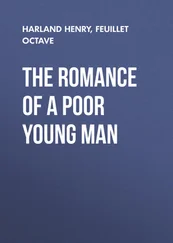Benjamin Waterhouse - A Journal of a Young Man of Massachusetts, 2nd ed.
Здесь есть возможность читать онлайн «Benjamin Waterhouse - A Journal of a Young Man of Massachusetts, 2nd ed.» — ознакомительный отрывок электронной книги совершенно бесплатно, а после прочтения отрывка купить полную версию. В некоторых случаях можно слушать аудио, скачать через торрент в формате fb2 и присутствует краткое содержание. Жанр: foreign_prose, История, foreign_edu, foreign_antique, на английском языке. Описание произведения, (предисловие) а так же отзывы посетителей доступны на портале библиотеки ЛибКат.
- Название:A Journal of a Young Man of Massachusetts, 2nd ed.
- Автор:
- Жанр:
- Год:неизвестен
- ISBN:нет данных
- Рейтинг книги:5 / 5. Голосов: 1
-
Избранное:Добавить в избранное
- Отзывы:
-
Ваша оценка:
- 100
- 1
- 2
- 3
- 4
- 5
A Journal of a Young Man of Massachusetts, 2nd ed.: краткое содержание, описание и аннотация
Предлагаем к чтению аннотацию, описание, краткое содержание или предисловие (зависит от того, что написал сам автор книги «A Journal of a Young Man of Massachusetts, 2nd ed.»). Если вы не нашли необходимую информацию о книге — напишите в комментариях, мы постараемся отыскать её.
A Journal of a Young Man of Massachusetts, 2nd ed. — читать онлайн ознакомительный отрывок
Ниже представлен текст книги, разбитый по страницам. Система сохранения места последней прочитанной страницы, позволяет с удобством читать онлайн бесплатно книгу «A Journal of a Young Man of Massachusetts, 2nd ed.», без необходимости каждый раз заново искать на чём Вы остановились. Поставьте закладку, и сможете в любой момент перейти на страницу, на которой закончили чтение.
Интервал:
Закладка:
"Cowards are cruel, but the brave
Love mercy, and delight to save." 3 3 The Emperor Maurice being, says Montaigne , advised by dreams and several prognostics, that one Phoeas , an obscure soldier, should kill him, questioned his son-in-law, Philip, who this Phoeas was, and what was his nature, qualities, and manners; and as soon as Philip, amongst other things, had told him that he was " cowardly and timorous ," the Emperor immediately thence concluded that he was cruel and a murderer . What is it, says Montaigne, that makes tyrants so bloody? 'Tis the solicitude for their own safety, and their faint hearts can furnish them with no other means of securing themselves, than in exterminating those who may hurt them. See his Essay entitled, Cowardice the Mother of Cruelty .—Vol. 2d, chap. xxvii.
The Scotch are brave soldiers, but we, Americans, have found them to be the most hard hearted and cruel people we have ever yet met with. Our soldiers as well as sailors make the same complaint, insomuch, that, " cruel as a Scotchman ," has become a proverb in the United States.—The Scotch officers have been remarked for treating our officers, when in their power, with insolence, and expressions of contempt; more so than the English. It is said that a Scotch officer, who superintends the horrid whippings so common in British camps, is commonly observed to be more hard hearted than an English one. It is certain that they are generally preferred as negro-drivers in the West-India islands. It has been uniformly remarked that those Scotchmen who are settled on the Canada frontiers are remarkable for their bitterness towards our men in captivity.
We speak here of the vagrant Scotch, the fortune-hunters of the Caledonian tribe; at the same time we respect her philosophers and literary men, who appear to us to compose the first rank of writers. Without mentioning their Ossian, Thompson and Burns, we may enumerate their prose writers, such as Hume, and the present association of truly learned and acute men, who write the Edinburgh Review . A Scotchman may be allowed to show pride at the mention of this celebrated work. As it regards America, this northern constellation of talent, shines brightly in our eyes. The ancient Greeks, who once straggled about Rome and the Roman empire, were not fair specimens of the refined Athenians.
Our peasantry, settled around our own frontier, and around the shores of our lakes, have a notion that the Scotch Highlanders were, not long since, the same kind of wild, half-naked people compared with the true English, that the Choctaws , Cherokees , Pottowatomies and Kickapoo Indians are to the common inhabitants of these United States; and that less than an hundred years ago, these Scotchmen were in the habit of making the like scalping and tomahawking excursions upon the English farmer, that the North American savage makes upon the white people here. This is the general idea which our common people have of what Walter Scott calls " the border wars ." Some of them will tell you that the Scotch go half naked in their own country—wear a blanket, and kill their enemies, with a knife, just like Indians. They say their features differ from the English as much as theirs do from the Indian. In a word, they suppose the Scotch Highlanders to be a race who have been conquered by the English, who have taught them the use of fire arms, and civilized them, in a degree, so as to form them into regiments of soldiers, and this imperfect idea of the half savage Sawney will not soon be corrected; and we must say that the general conduct of this harsh and self-interested race towards our prisoners, will not expedite the period of correct ideas relative to the comparative condition of the Scotch and English. The Americans have imbibed no prejudice against the Irish, having found them a brave, generous, jovial set of fellows, full of fun, and full of good, kind feelings; the antipodes of Scotchmen, who, as it regards these qualities, are cold, rough and barren; like the land that gave them birth.
We moved from Portsmouth to the Nore or Noah, for I know not the meaning of the word, or how to spell it. The place so called is the mouth of the river Thames, which runs through the capital of the British nation. We were three days on our passage. Here we were transferred to several tenders in order to be transported to Chatham. We soon entered the river Medway , which rises in Sussex, and passes by Tunbridge, Maidstone and Rochester, in Kent; and is then divided into two branches, called the east and west passage. The chief entrance is the west; and is defended by a considerable fort, called Sheerness . In this river lay a number of Russian men of war, detained here probably by way of pledge for the fidelity of the Emperor. What gives most celebrity to this river is Chatham , a naval station, where the English build and lay up their first rate men of war. It is but about thirty miles from London; or the distance of Newport, Rhode Island, from the town of Providence. We passed up to where the prison ships lay, after dark. The prospect appeared very pleasant, as the prison ships appeared to us illuminated. As we were all upon deck, we enjoyed the sight as we passed, and the commander of the tender appeared to partake of our pleasure. We were ordered on board the Crown Prince prison ship; and as our names were called over, we were marched along the deck between two rows of emaciated Frenchmen, who had drawn themselves up to review us. We then passed on to that part of the ship which was occupied by the Americans, who testified their curiosity at knowing all about us; and sticking to their national characteristic, put more questions to us in ten minutes, than we could well answer in as many hours. We passed the evening and the first part of the night in mutual communications; and we went to rest with more pleasure than for many a night before.
Our prison ship was moored in what they called Gillingham reach . We would here remark, that the river, and Thames, and Medway make, like all other rivers near to their outlets, many turnings or bendings; some forming a more obtuse, and some a more acute angle with their banks. This course of the river compels a vessel to stretch along in one direction, and then to stretch along in a very different direction. What the English call reaching , we in America call stretching . Each of these different courses of the river they call " reaches ." They have their long reach and their short reach , and a number of reaches, under local, or less obvious names. Some are named after some of their own pirates, which is here and there designated by a gibbet; a singular object, be sure, to greet the eye of a stranger on entering the grand watery avenue of the capital of the British empire. But there is no room for disputing concerning our tastes. The reach where our prison was moored was about three miles below Chatham; and is named from the village of Gillingham. Now whether reach or stretch be the most proper term for an effort to sail against the wind, is left to be settled by those reverend monopolizers of all the arts and sciences, the London Reviewers ; who, by the way, and we mention it pro bono publico , would very much increase their stock of knowledge and usefulness, if they would depute a few missionaries, for their own reverend body, to pass and repass the Atlantic in a British transport, containing in its black hole an hundred or two of Yankee prisoners of war: We do wish that the London Quarterly Reviewers particularly would take a trip in the Malabar ; it would, if they should be so fortunate as to survive the voyage, make them better judges of the character of the English nation, and of the American nation, and of that nearly lost tribe, the Caledonian nation.
Читать дальшеИнтервал:
Закладка:
Похожие книги на «A Journal of a Young Man of Massachusetts, 2nd ed.»
Представляем Вашему вниманию похожие книги на «A Journal of a Young Man of Massachusetts, 2nd ed.» списком для выбора. Мы отобрали схожую по названию и смыслу литературу в надежде предоставить читателям больше вариантов отыскать новые, интересные, ещё непрочитанные произведения.
Обсуждение, отзывы о книге «A Journal of a Young Man of Massachusetts, 2nd ed.» и просто собственные мнения читателей. Оставьте ваши комментарии, напишите, что Вы думаете о произведении, его смысле или главных героях. Укажите что конкретно понравилось, а что нет, и почему Вы так считаете.












